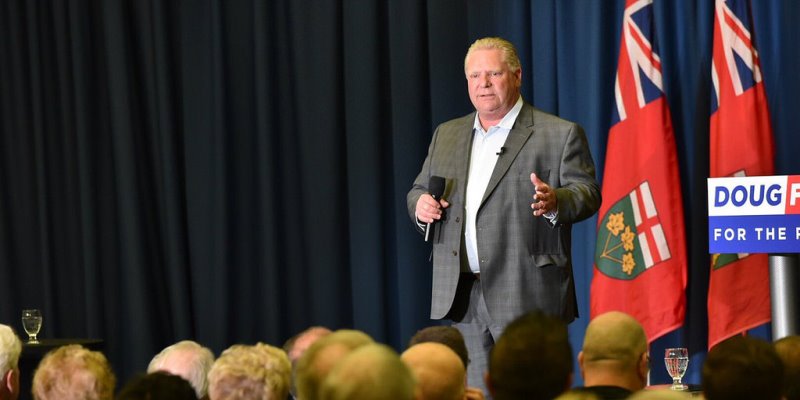Here’s how Premier Ford can make hard work pay off in Ontario

With his new mandate, Premier Ford must now deliver on his election promise to “ensure Ontario is the economic engine of Canada, with one of the fastest-growing economies in North America.” Doing so will require a host of policy changes, but none more important than dealing with Ontario’s growth-killing taxes.
While Ontario families faced a host of tax increases over the years, none have been more economically damaging than income tax hikes on the province’s high-skilled workers including entrepreneurs, engineers, lawyers and doctors. From 2012 to 2014, the Ontario government “temporarily” increased the province’s top personal income tax rate multiple times, from 17.41 to 20.53 per cent. The federal government raised personal income taxes in 2016 by increasing its top marginal tax rate from 29 to 33 per cent. As a result, Ontario’s top personal income tax rate (federal and provincial combined) is 53.5 per cent, the third-highest rate among all 60 U.S. states and Canadian provinces (except Nova Scotia and Newfoundland and Labrador).
Now consider the province’s top marginal tax rate (“marginal” is economic speak for the tax rate on the next dollar of income you earn). In addition to income taxes, when you also include Ontario’s 13 per cent HST and other types of taxes including property taxes, payroll taxes and gasoline taxes, the total all-in tax rate on additional income for many professionals, entrepreneurs and high-skilled workers is more than 72 per cent.
This is a major issue for Ontario, as research shows high marginal tax rates discourage productive economic activities such as work, savings, investment and entrepreneurship. When 72 cents of every additional dollar a family earns goes to pay taxes, hard work simply doesn’t pay off.
Premier Ford has demonstrated knowledge of the impact of high taxes. In his 2018 platform, he promised to reduce provincial taxes on doctors to encourage them to move to northern Ontario.
But why stop there? Why not send a message to Ontarian entrepreneurs, professionals and skilled workers that hard work pays off in the province? Why not send the same message to the same entrepreneurs, professionals and skilled workers across Canada and the United States? Come to Ontario, your hard work pays.
For starters, the government could repeal Ontario’s “temporary” income tax hike to boost economic activity while costing the province very little in forgone revenue. A 2020 study found that lowering the province’s top personal income tax rate from the current 20.53 per cent to 17.41 per cent—where it was prior to a “temporary” rate hike in 2012— would encourage significantly more economic activity. So much so, that after five years the revenue loss would only be approximately $150 million (or less than 0.5 per cent) of the $45 billion or more in personal income tax the government collects annually.
Improving incentives to work hard, save, invest and take entrepreneurial risks is simply good economic policy. If Premier Ford wants to deliver on his promise to re-establish Ontario as the engine of economic growth and prosperity in North America, improving incentives through tax reductions would be a good place to start.
Authors:
Subscribe to the Fraser Institute
Get the latest news from the Fraser Institute on the latest research studies, news and events.


